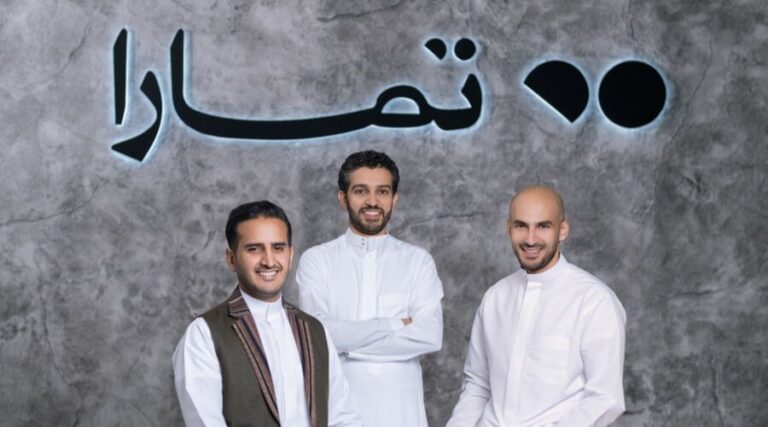Artificial intelligence is everywhere. It writes our emails, curates our feeds, translates our conversations. For years, the story of AI seemed to belong almost entirely to Silicon Valley — to Google, OpenAI, Anthropic, and the dozens of YC-backed startups building tools for developers around the world. But if you take a closer look, something interesting is happening in the Middle East.
In Abu Dhabi, researchers at the Technology Innovation Institute built Falcon-180B, an open-source large language model with a staggering 180 billion parameters. When it launched, it briefly topped Hugging Face’s Open LLM Leaderboard, outpacing better-funded peers from the US and Europe. What made Falcon different was not only its size, but the decision to release it openly for research and commercial use — a move that gave startups and governments across the region a foundation to build on. A year later, Falcon-2 arrived, lighter and faster, but still multilingual, with an unusual focus on Arabic — something most Western models still struggle with.
Meanwhile, in the same city, engineers from G42 partnered with Cerebras to build Condor Galaxy, one of the world’s largest AI supercomputing networks. With exascale power spread across multiple sites, Condor Galaxy ensures that the region has the raw horsepower to train and deploy models at scale. No more waiting in line for GPUs in California or depending entirely on overseas cloud providers. In the words of Nvidia’s CEO Jensen Huang, who recently told an audience in Dubai, “Every country needs to have its own AI systems. It codifies your culture, your society’s intelligence, your common sense, your history.” That’s exactly what Condor Galaxy represents: sovereignty in compute, and with it, sovereignty in culture.
Every country needs to have its own AI systems. It codifies your culture, your society’s intelligence, your common sense, your history.
Jensen Huang
Not every story is about giant clusters or trillion-token datasets. Some of the most interesting work in MENA is happening in highly regulated verticals. Riyadh-based Mozn has built FOCAL, an AI platform that helps banks and financial institutions combat money laundering and financial crime — an area where mistakes can destroy reputations and bring regulatory heat. Tarjama, headquartered in the UAE, just raised $15 million to scale Arabic.AI, its enterprise language platform. Arabic is notoriously difficult for global models to master, with multiple dialects, rich morphology, and cultural nuance. Tarjama’s bet is that an Arabic-first company can deliver accuracy and trust that Western products cannot.
These are not hypothetical ideas. They are products in use by banks, governments, and multinationals. And they come alongside other milestones — like the 2023 acquisition of InstaDeep, a Tunisian-founded AI company, by BioNTech, which is now embedding its machine-learning algorithms into drug discovery pipelines. Real science, applied at real scale, producing tangible value.
Compare this with the roster of Y Combinator AI startups. Scale AI, a YC alum, provides the data pipelines and labeling infrastructure that almost every frontier model relies on. Deepgram, another graduate, offers speech recognition APIs to customers worldwide. Many YC startups are not building giant models or sovereign supercomputers, but instead the developer tools and APIs that allow AI to spread quickly into apps, products, and workflows. Their advantage is speed, adoption, and recurring revenue. Their weakness, at least from a MENA perspective, is depth: few of them are tuned to Arabic, few deal with the mess of regulatory compliance in Saudi or Egypt, and fewer still are grounded in local realities.
That contrast makes the story clearer. The Middle East is not trying to out-YC Y Combinator; it’s trying to build in the areas it knows best. Arabic-first AI, compliance-ready fintech solutions, sovereign compute, and open models that double as national projects. Omar Al Olama, the UAE’s Minister of AI, once remarked, “You need to have someone who sees AI and its application across the government with a holistic view, and ensure there is at least some sort of coordination between different bodies.” That spirit — of coordination, of national vision — permeates much of the region’s AI strategy.
Of course, there’s still hype. Press releases sometimes outpace products. Talent is scarce, with too few senior researchers and too many pilot projects that never reach scale. Some startups lean heavily on imported models and infrastructure, raising questions about long-term independence. But taken together — Falcon’s open models, Condor Galaxy’s exascale power, Mozn’s regulatory AI, Tarjama’s Arabic NLP, InstaDeep’s biotech breakthrough — the picture looks less like hype and more like a genuine ecosystem beginning to bloom.
YC startups will continue to excel in developer markets, APIs, and bottom-up SaaS. But MENA’s AI companies are carving out their own edge: systems that understand their people, languages that reflect their history, and compute clusters that don’t depend on someone else’s goodwill. If you judge innovation not only by valuation, but by cultural fit, technical depth, and sovereign control, then the Middle East’s AI wave is not just real — it is essential.



MENA startups are proving their AI innovation is real, regional, and globally relevant